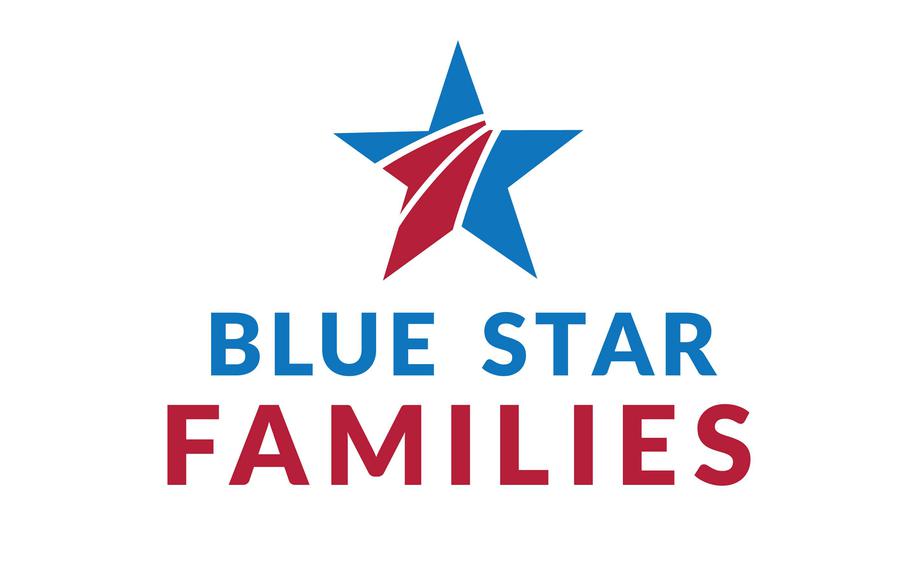Opinion
Military families live right next door: The resources exist to fully welcome them
Special to Stars and Stripes October 10, 2023

The Blue Star Families’ latest Military Family Lifestyle Survey uncovered the challenges faced by the 600,000 military families that relocate each year as part of their duty. (Blue Star Families/Facebook)
Training is a building block of the military. It’s where service members gain the skills needed to do their jobs, and build the foundation of trust that enables them to function and perform together, during day-to-day duties and high pressure moments. It’s where trust is built, and lifelong friendships are made. But there are no training drills or camps for their families, and as they move from town to town, no network of supportive colleagues. While these families learn the logistics of how to execute an efficient cross-country move — something they do on average every two to three years — there is no manual for coping with the emotional strain of uprooting a household.
The Blue Star Families’ latest Military Family Lifestyle Survey uncovered the challenges faced by the 600,000 military families that relocate each year as part of their duty. Faced with issues including poor options of civilian housing, hurdles accessing emotional support of all types, children’s mental health care as kids bounce from therapist to therapist with each move, and a lack of affordable child care, only 37% of active-duty families are likely to recommend military service to other Americans, down from 55% less than a decade ago.
But there is something we can all do to help. First, an introduction: one of us is the CEO of Blue Star Families, a national nonprofit that supports families of military service members and helps them integrate into whatever communities they may find themselves in. The other is a marketing industry leader at Nextdoor, the neighborhood network and app that connects neighbors to local businesses, public agencies, nonprofits and others in their communities so they can thrive. In short, we know the importance of making connections, and this month, our two organizations are coming together to help all of us understand the challenges met by military families on the move and celebrate our shared communities.
We have reached the end of Blue Star Welcome Week, when communities reach out to military families who have moved into their new homes. With data revealing that only a third of military families feel a sense of belonging in their civilian communities, no one needs a good neighbor more than the family of a military service member. These families are everywhere — in your community and perhaps on your block and are in need of local information, resources and the support of their neighbors. Our organizations collaborated to create a Military Movers kit for these families to help them engage and integrate with their new communities, and invite you all to help us roll out the welcome wagon.
Just last year, a military family who had recently relocated to Florida was battered like everyone else by Hurricane Ian. But unlike everyone else, this family was unfamiliar with local procedures and resources when disaster strikes. Fortunately, the family had started to meet people through the “Coffee Connects” that Blue Star Families hosts at Starbucks locations around the country. But in a crisis that’s not always so practical. Your neighbors on Nextdoor are accessible at all times, connecting neighbors to local information, alerts and agencies, and most importantly, to one another.
We are asking, then, for established neighbors and military families to do your part and use this next year to connect first on Nextdoor — and then to do more, once that connection is made. Oftentimes just asking for help leads to a new friend. Sharon, a military spouse with a young son, had just arrived in her neighborhood. Sharing a post on Nextdoor’s “For Sale & Free” section, she introduced herself and her family, and said that she was looking for a used playset so her 5-year-old could enjoy his new backyard. Before she knew it, she not only had the playset for her youngster, but had spent a lovely afternoon with neighbors assembling the equipment, sharing snacks and getting to know one another. It’s these simple acts of kindness that help people feel like they belong.
Speaking personally, Kathy needed that connection in her life when her husband had to deploy on a secret mission soon after the birth of their second child. While alone and coping with the demands of law school, Kathy’s son had a medical emergency. She couldn’t take the baby anywhere and she had no child care. Fortunately, a pre-kindergarten parent she’d met was able to come over and provide “field care” at her home.
Unfortunately, Kathy’s experience is no outlier. Blue Star Families has an established list of ideas to help welcome military families as neighbors, ranging from as small as sharing a meal or pet sitting, to as life-changing as hiring a military spouse. (They can have trouble finding work when their lives are uprooted every few years.) As we see every day on Nextdoor, something as effortless and easy as a welcoming post can make an incredible difference.
When they do connect with new neighbors, they invariably find that neighbors want to help, but haven’t had a way to reach out. This partnership, and the influx of new families to their communities, is that boost and encouragement to reach out. We hope you do. It all starts with a post.
Kathy Roth-Douquet is CEO of Blue Star Families, a nonprofit that serves families of military service members. Heidi Andersen is Nextdoor’s head of revenue and marketing.